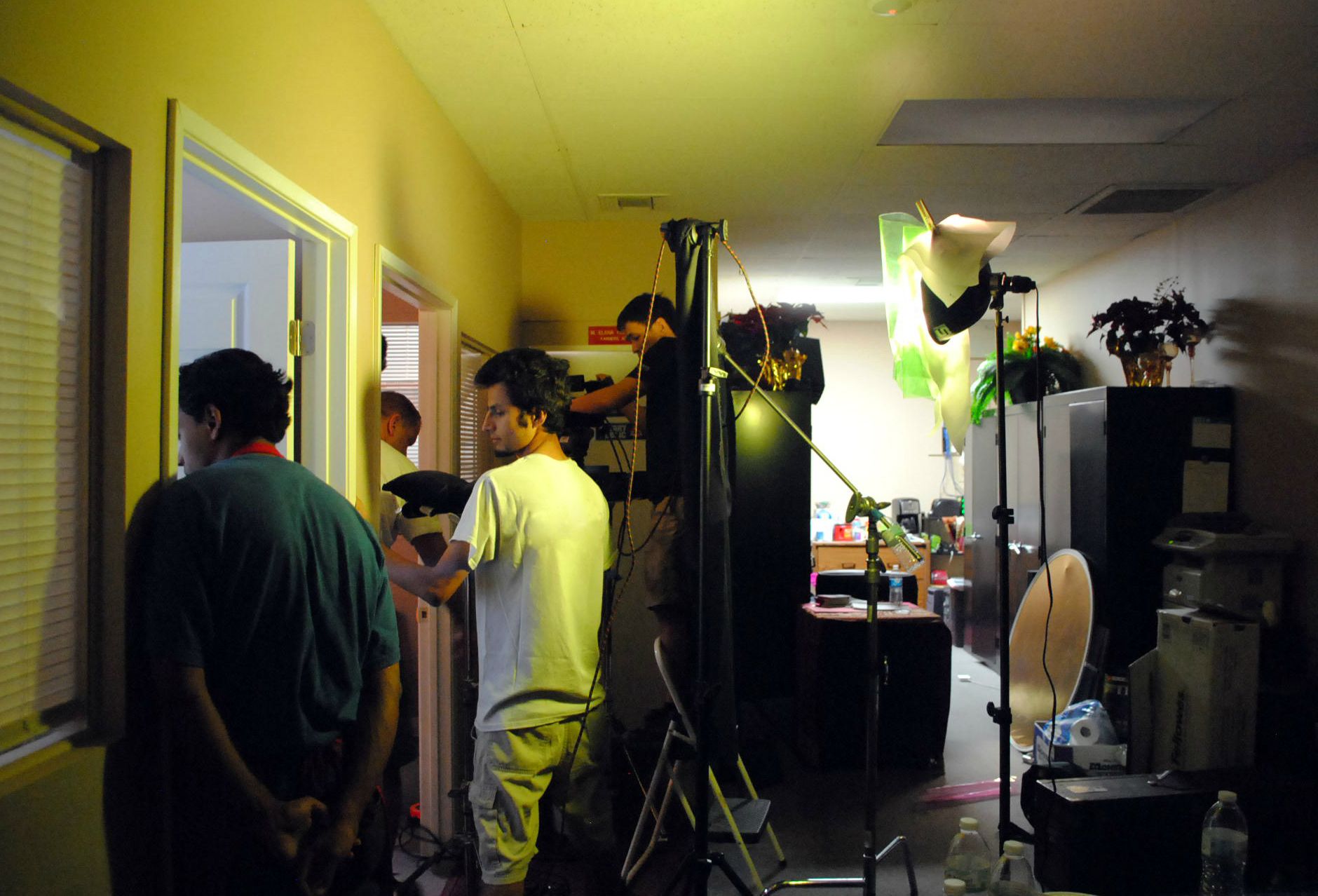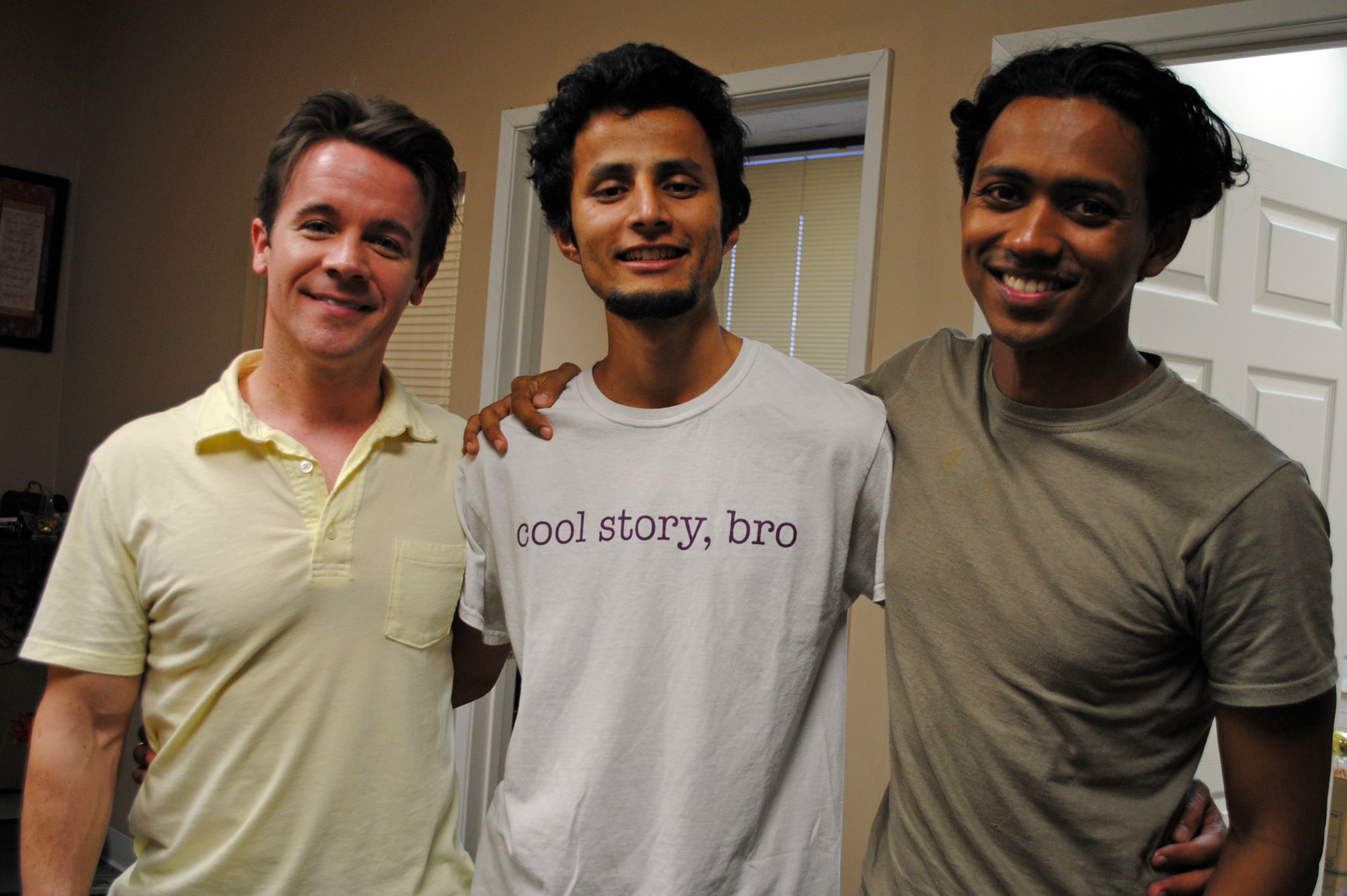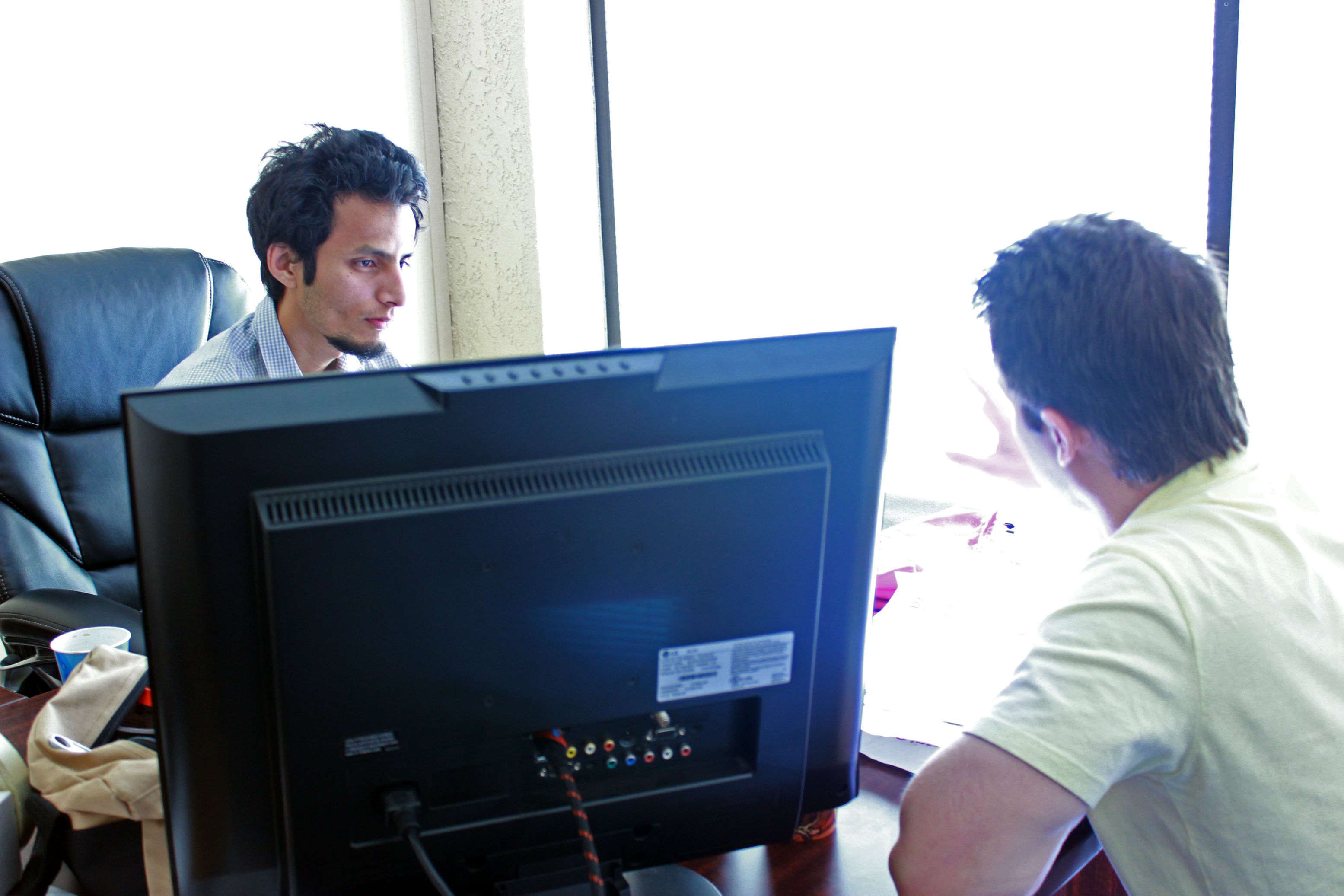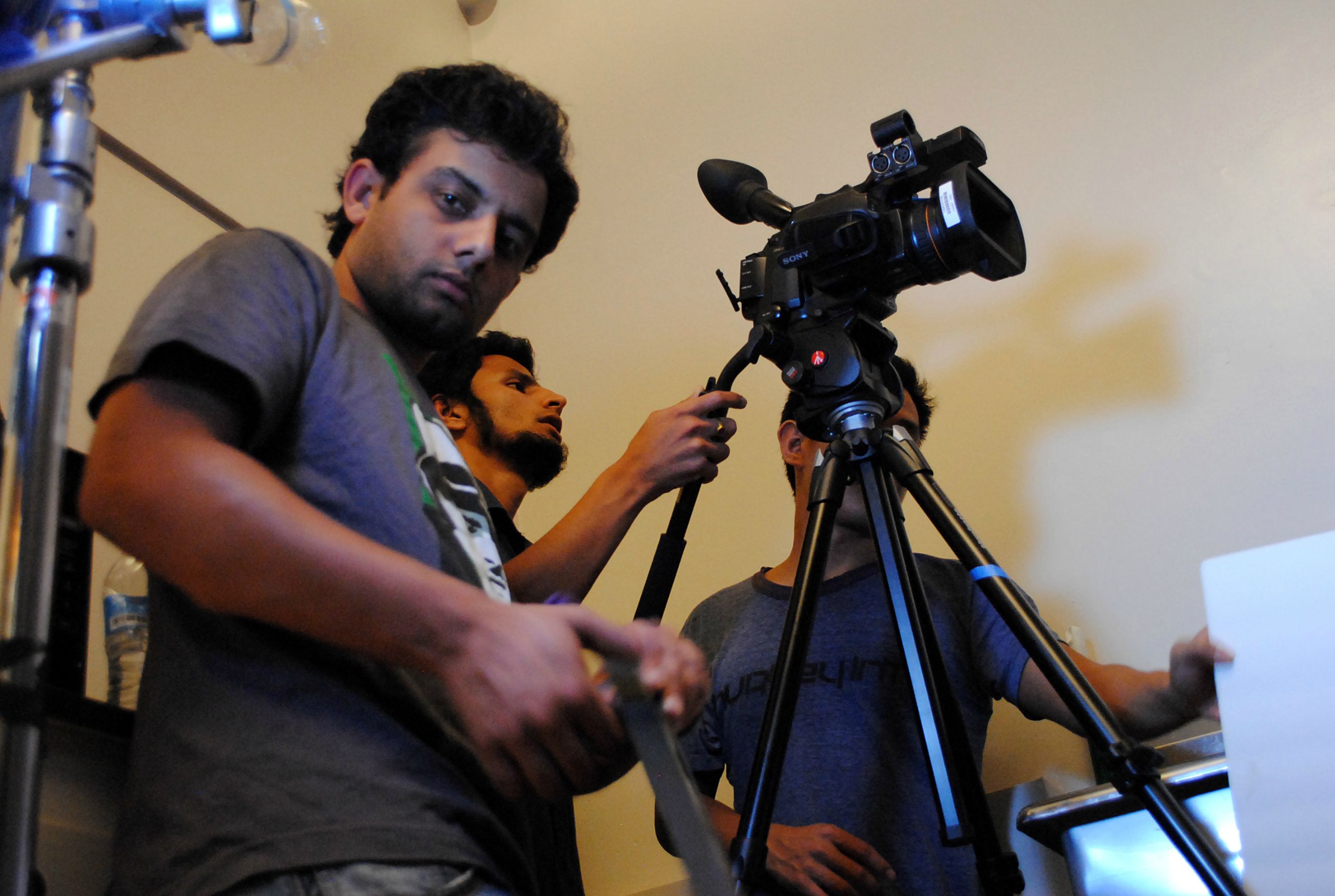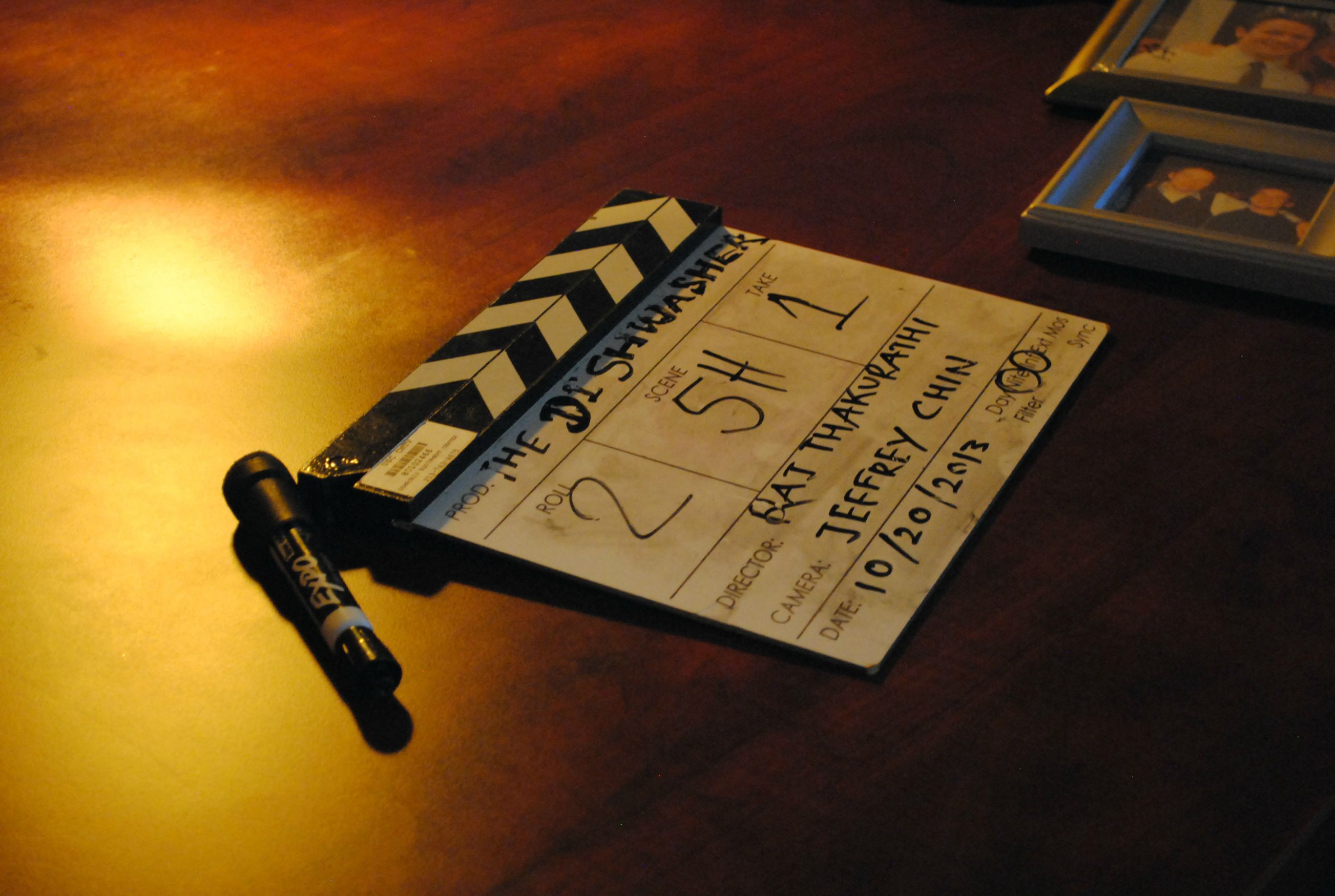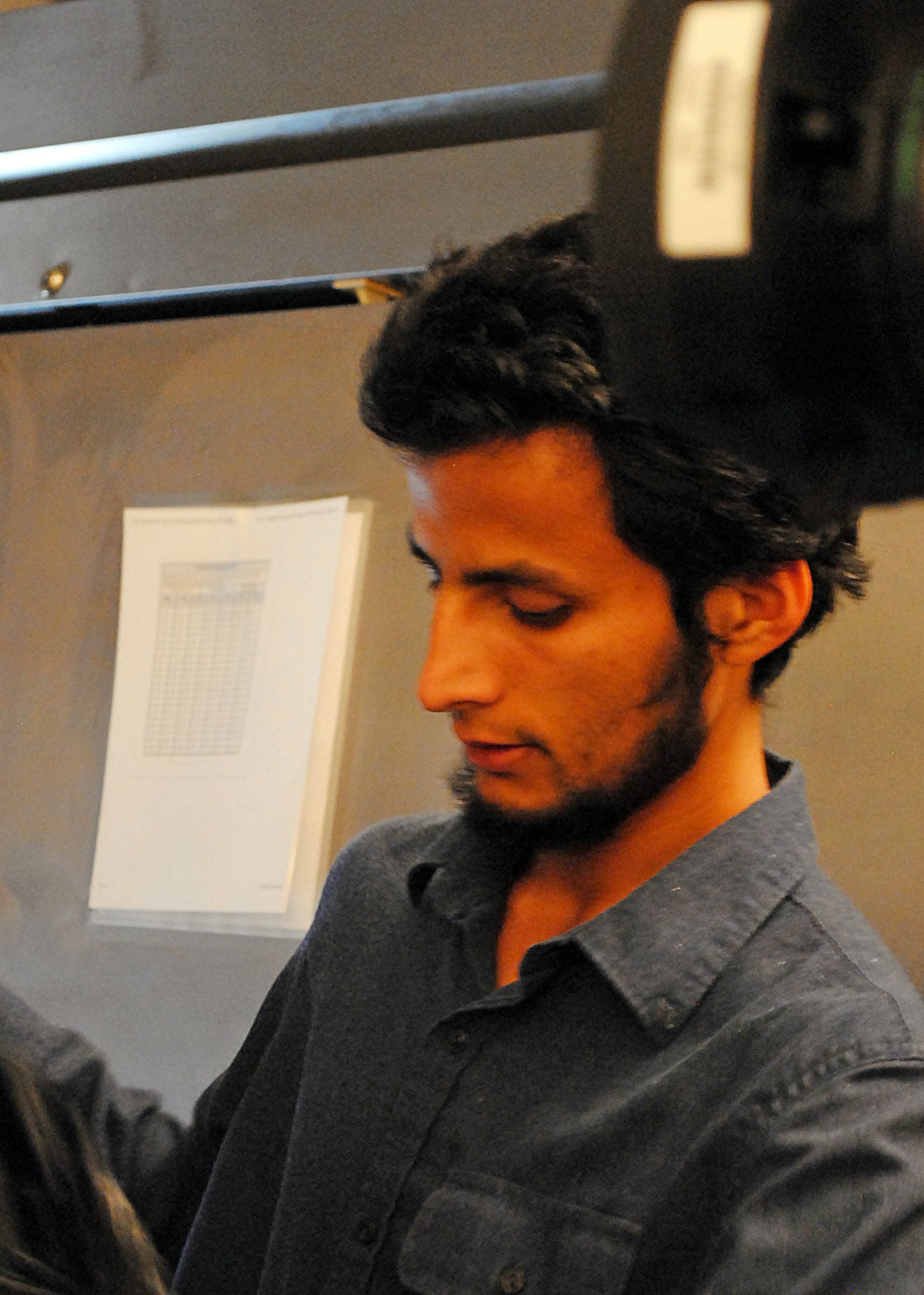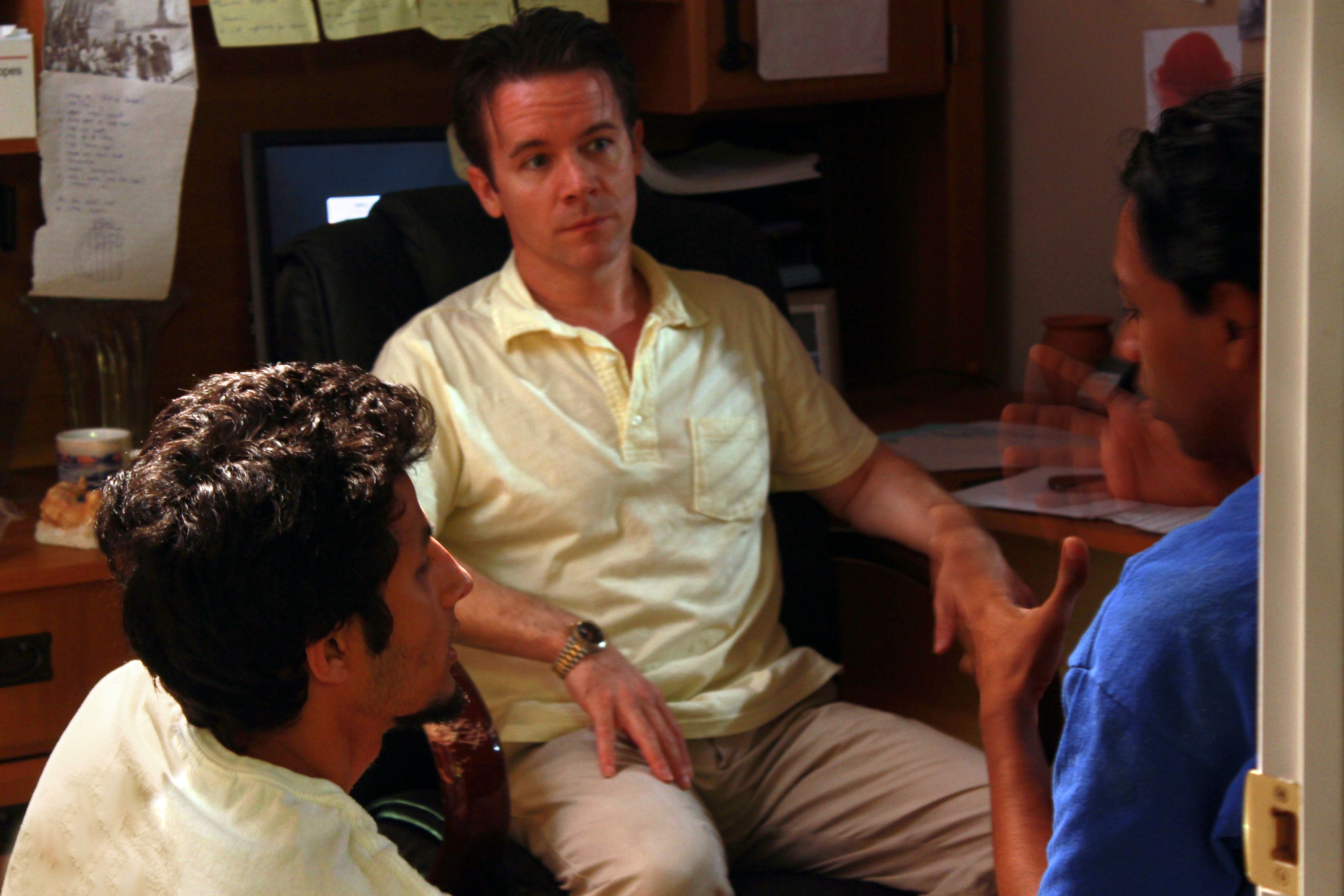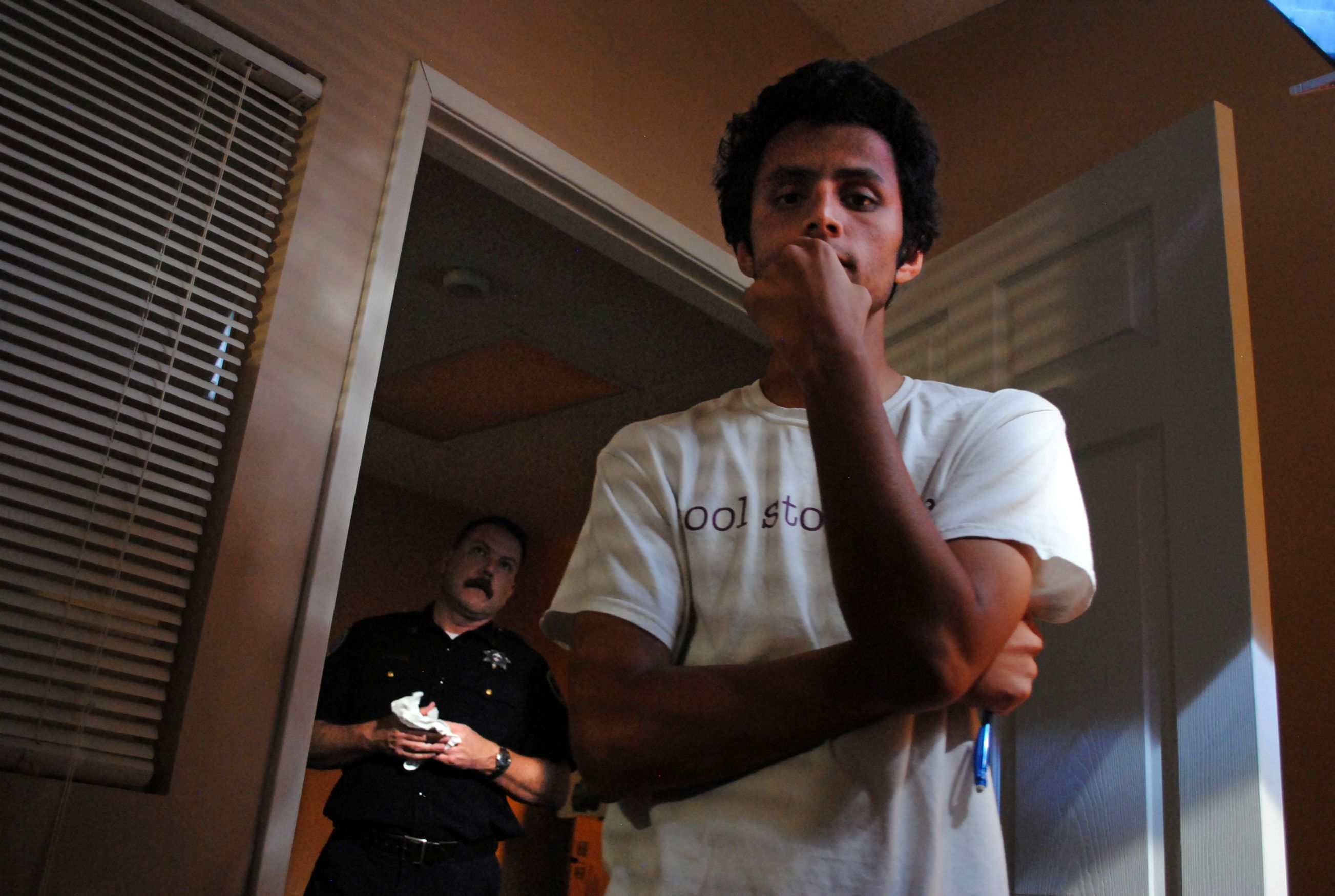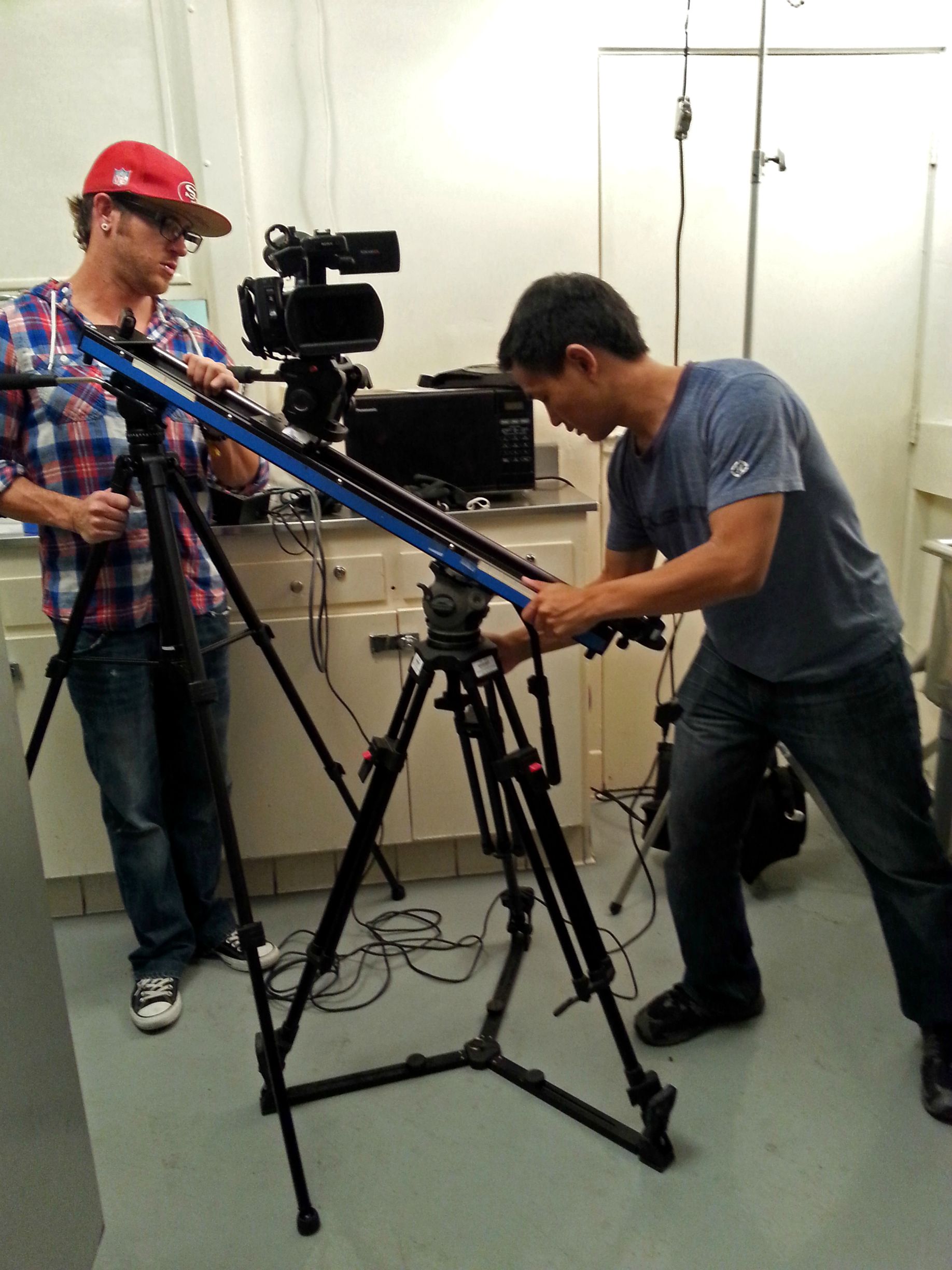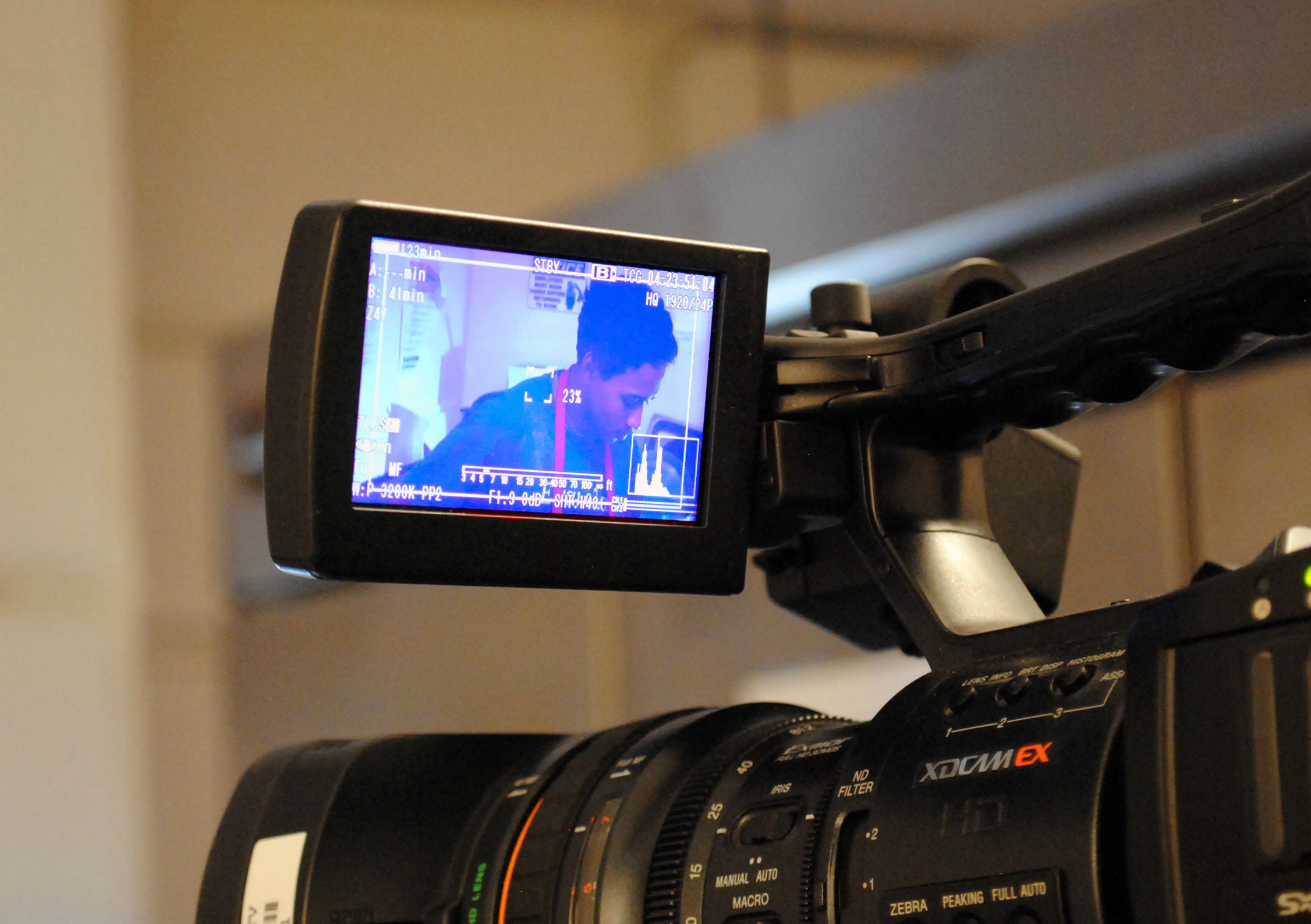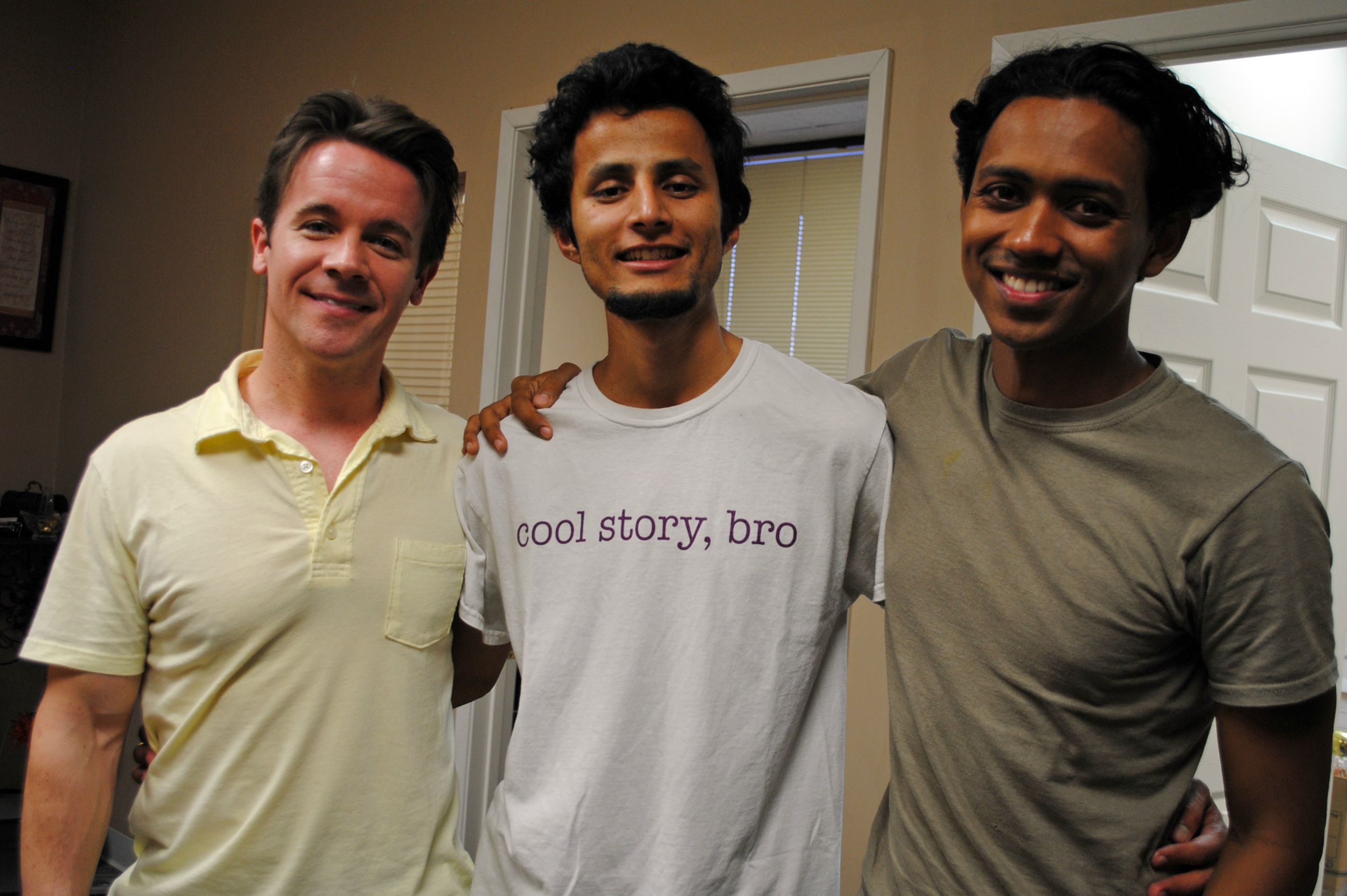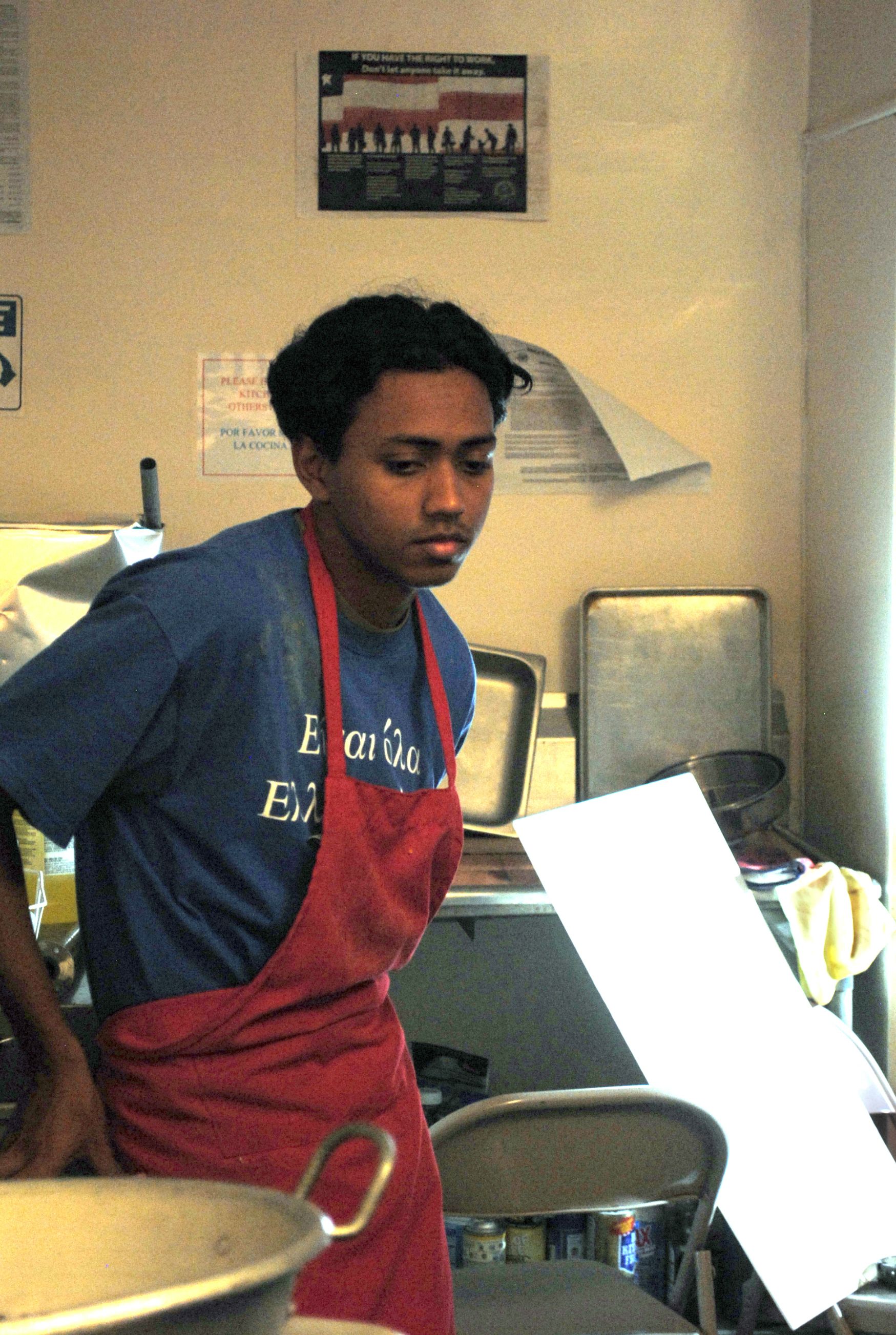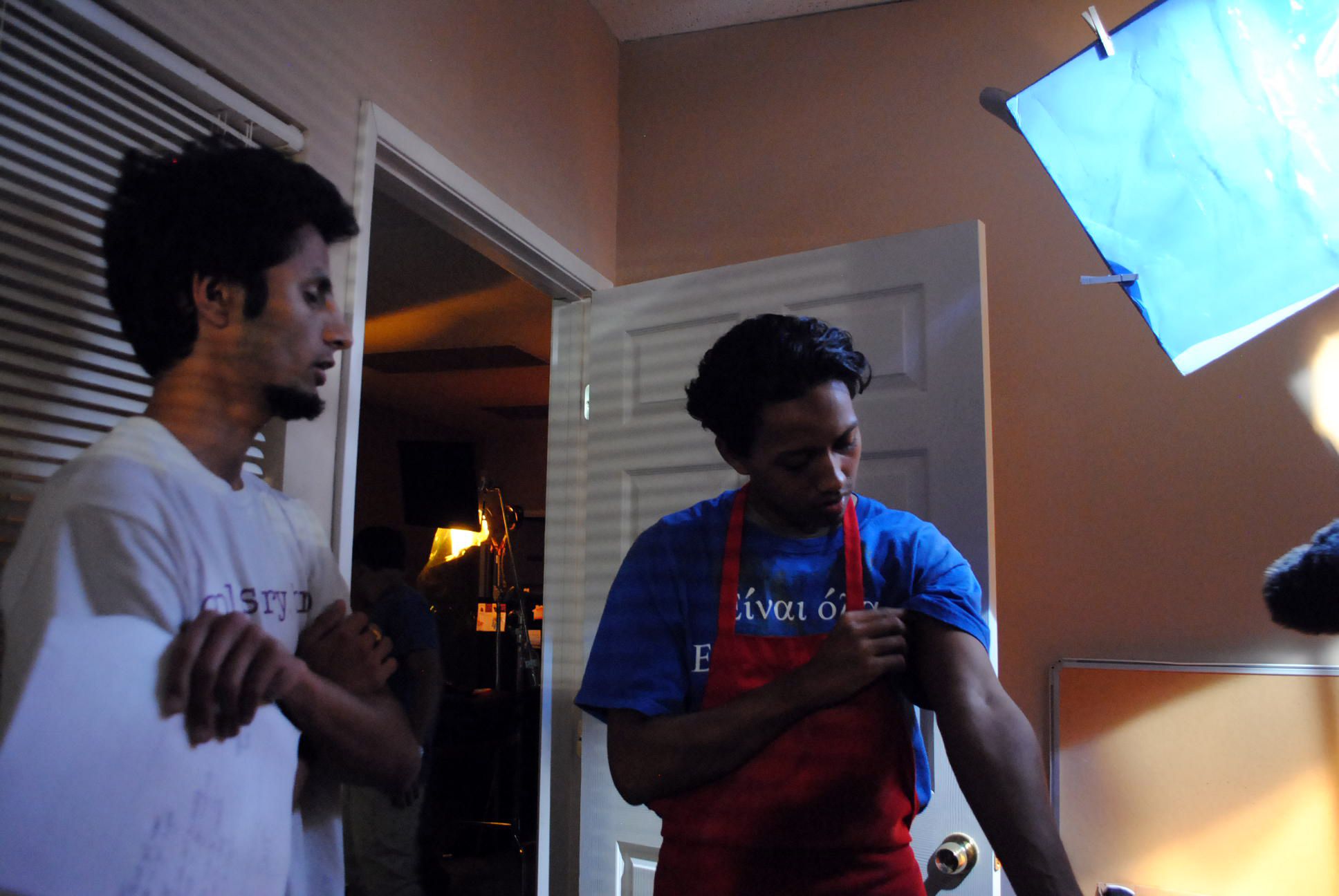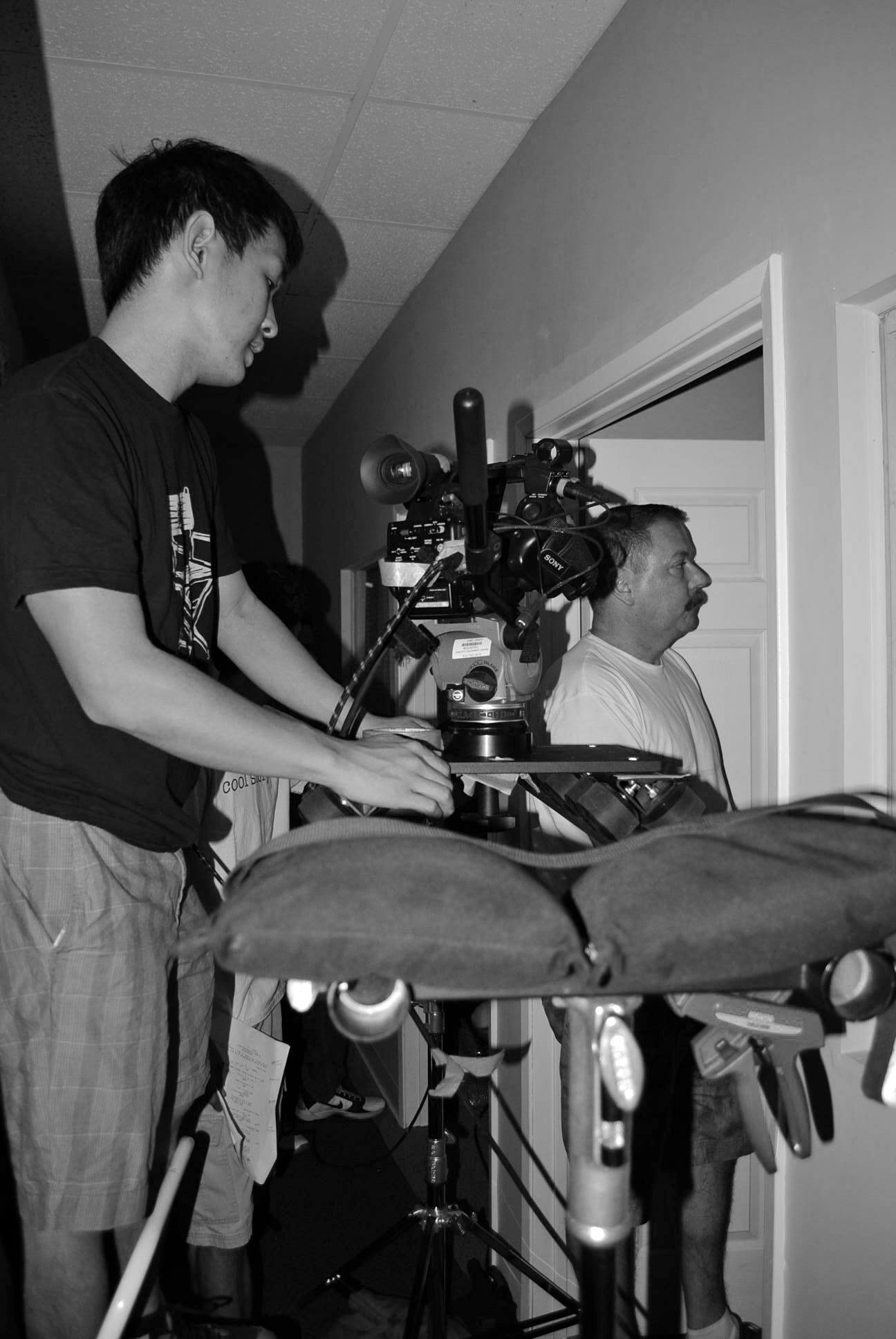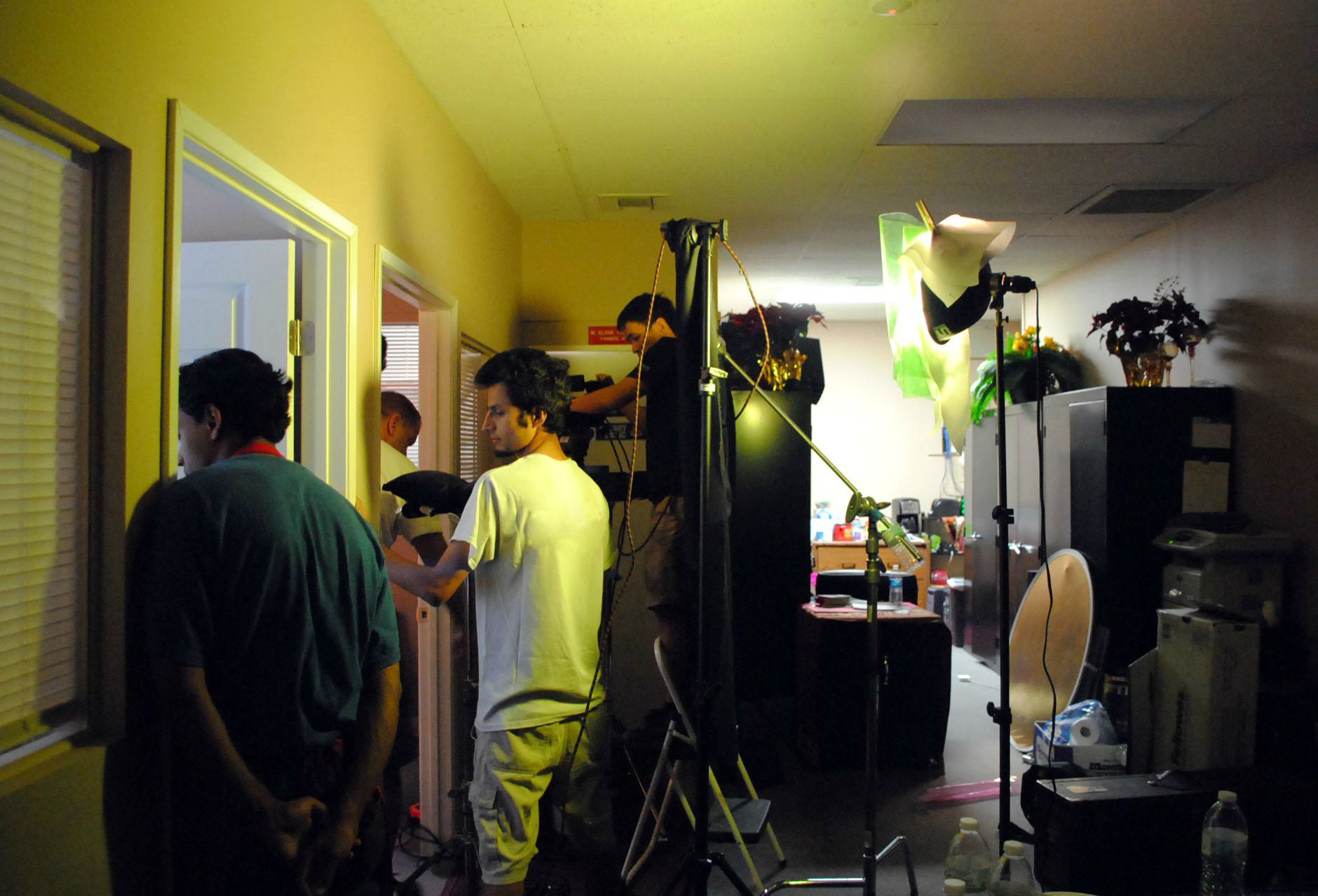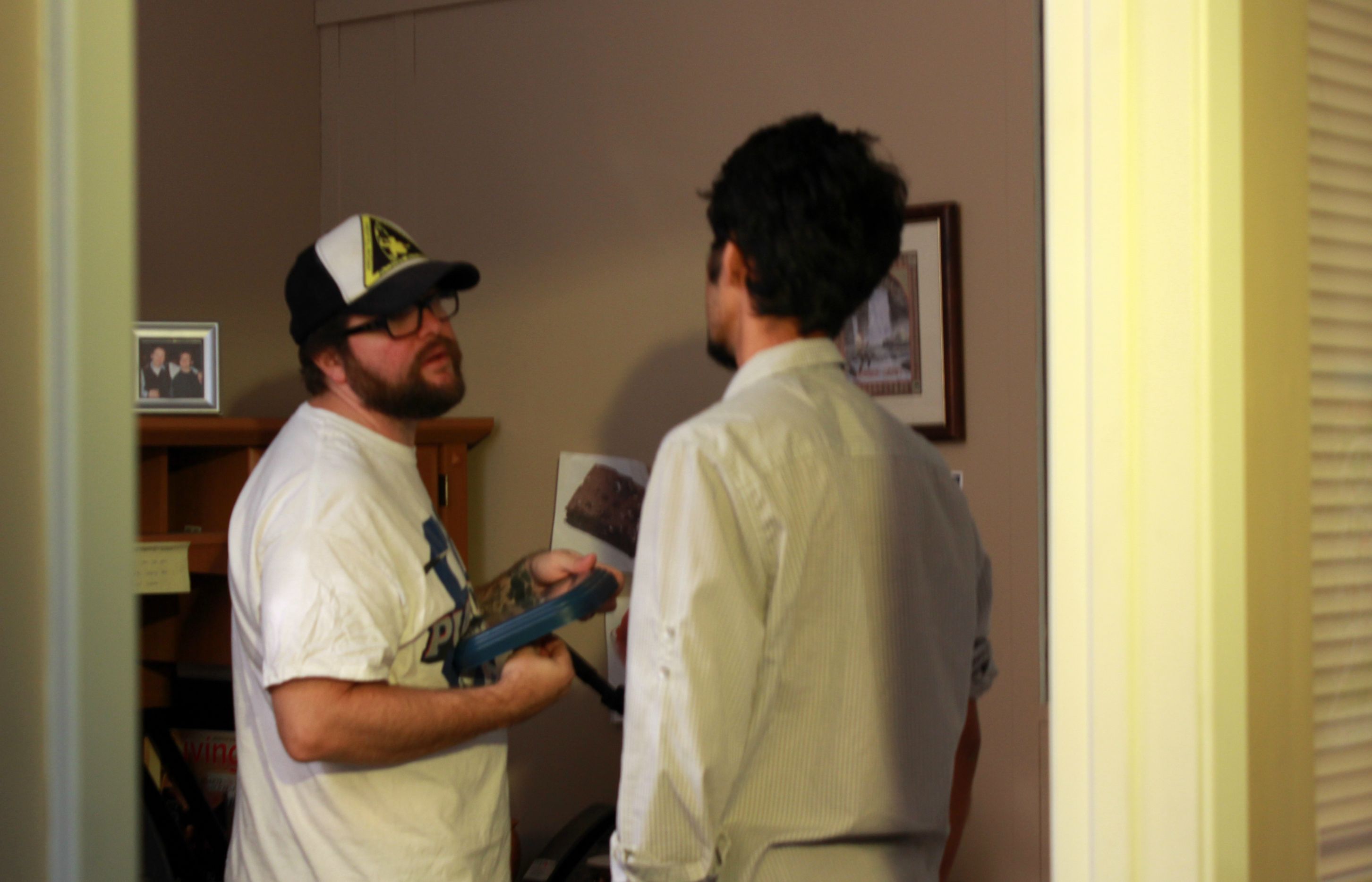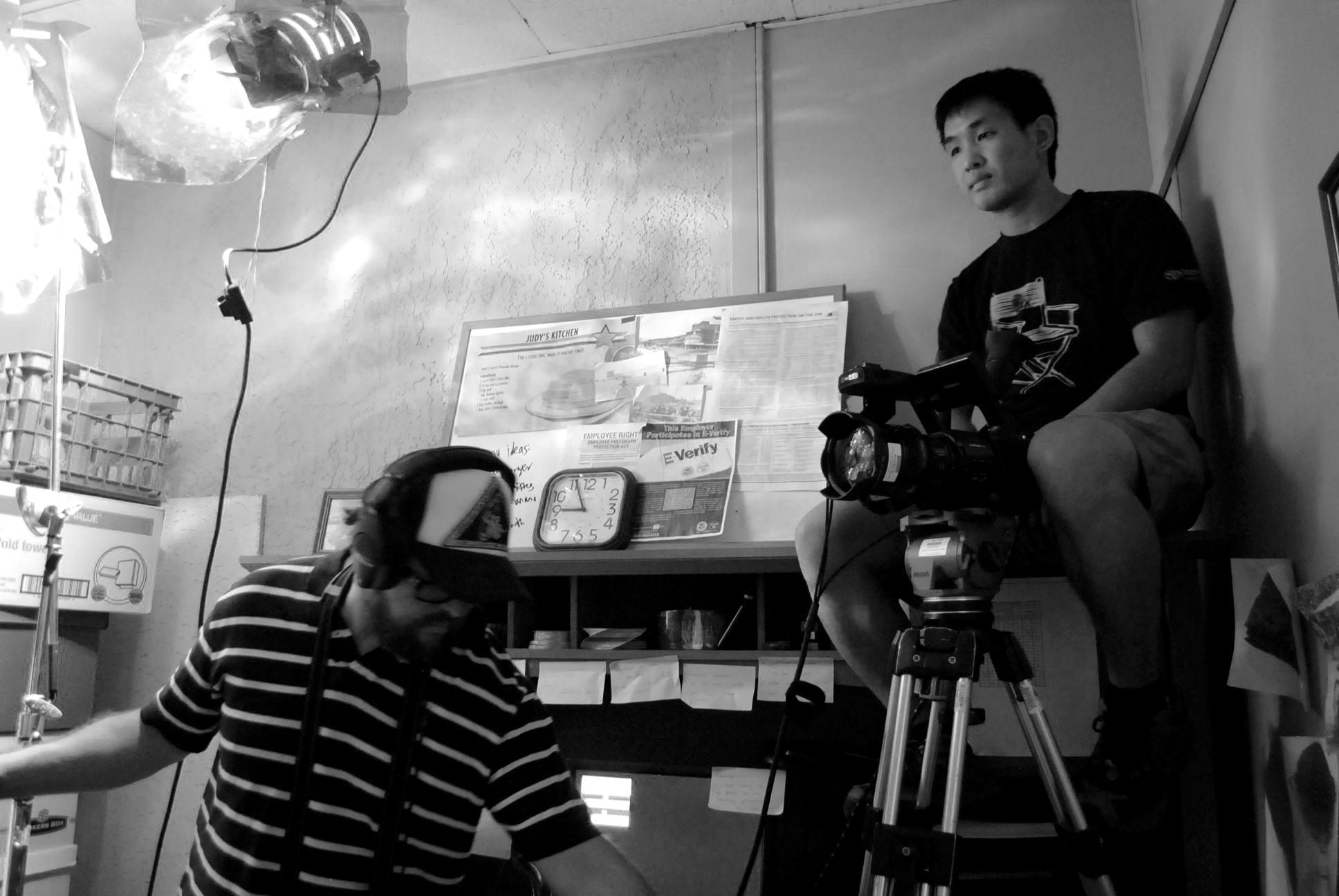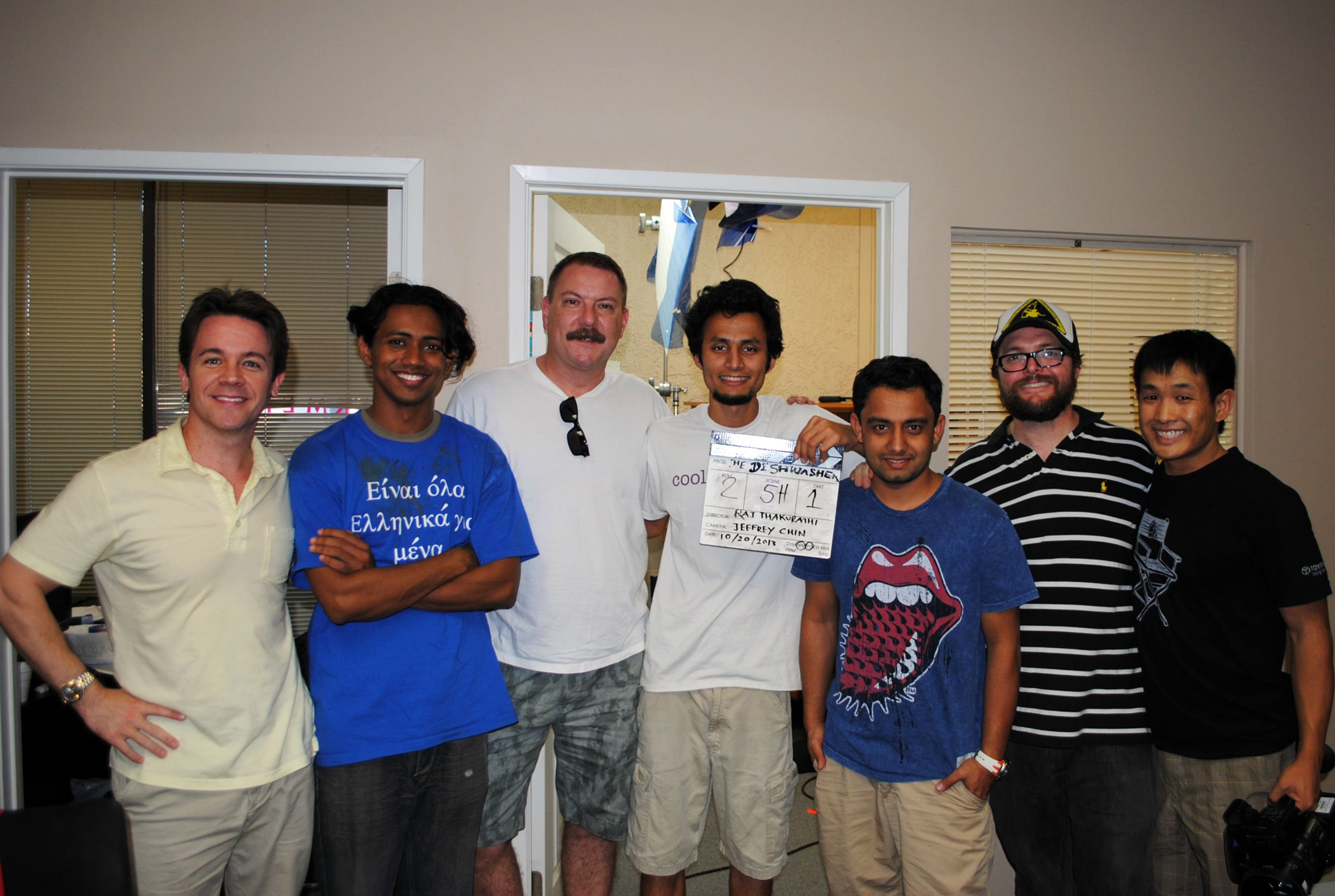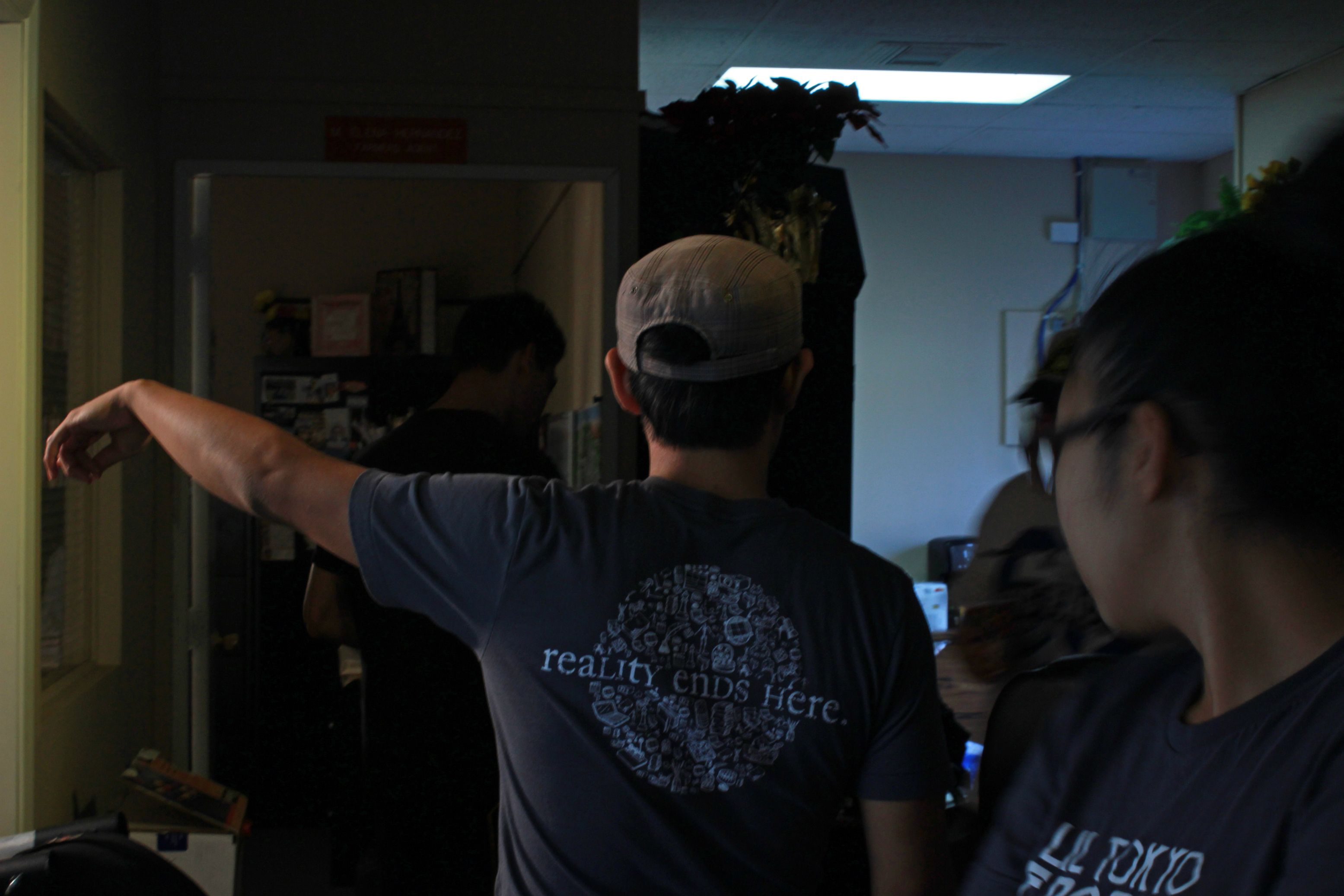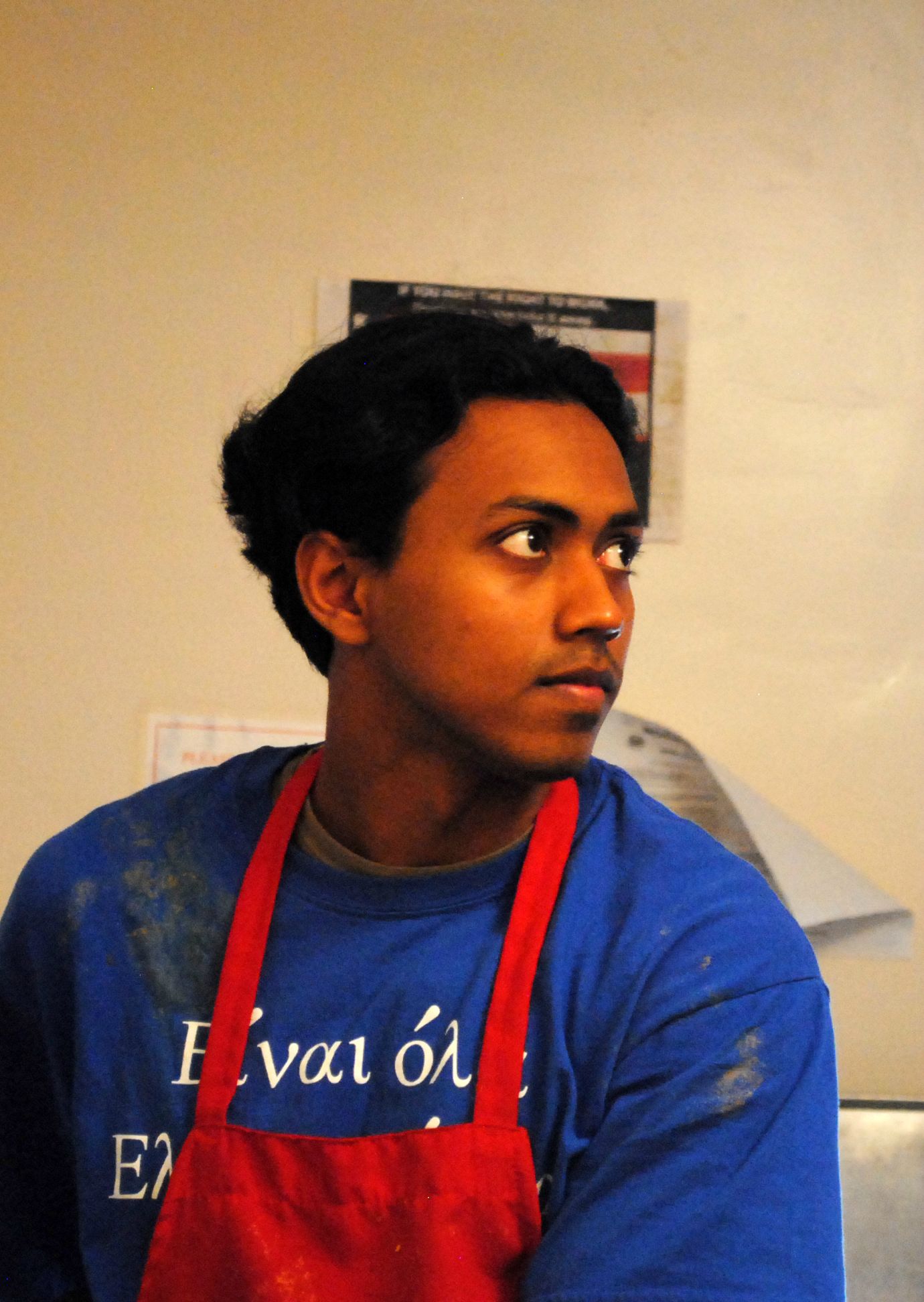Rajendra Thakurathi’s The Dishwasher is an important short film on several different layers. First of all, it should be said that we don’t base our opinions on movies on the subject they choose to grapple with. Whether it’s a theme we’re quite familiar with or the object in question means absolutely nothing to us, we respect every film, or work of art in general, that its creator feels strongly about. That said, it should also be noted that one of the reasons why we liked The Dishwasher, albeit not the principal one, is that we really thought it talks about something that is definitely worth listening to.
We see a young student called Ravi, delighted to have finally found a job at a local restaurant doing the dishes. As an international student, he isn’t allowed to work outside of the campus grounds, but since the tuition is high, he has no choice but to try. His education, meaning his future, is at stake. The emotion of happiness he feels when he gets the job is soon replaced by dread, as a police officer comes to the restaurant.
The first thing that caught my eye was the main actor, Mahedi Rakib. His Ravi is vulnerable, nervous, sweating not from the hard work he’s doing, but from anxiety and terror. This is a character it’s incredibly ease to relate to, as Rakib effortlessly transmits his emotions through the screen right into your heart. He is helped by a nice little role from experienced actor Craig Watkinson, the restaurant manager. Thakurathi’s short film is surprisingly suspenseful, given the limited time and space it has at its disposal. But good acting, skillful pacing and some nice camera work aside, it’s the ending of this film that makes it memorable.
The ending is the most important part not because it represents some kind of a climax to a situation that was slowly building up to that point, but because it holds a relevant message, an aptly shaped reminder of what many like to forget when they think about the United States. The land where you can make any dream come true if you work hard enough? It’s easy to sell this idea. It’s painless to use it as a pitch to attract attention. But the reality is much tougher. Not everyone can succeed, there are a whole lot of impassable barriers of whose existence people aren’t really aware of. Ravi realizes this as he’s given an American flag by the little girl at the end. It’s free, she says. The idea is always free. It’s the realization of the idea that has a price tag.
Why did you make The Dishwasher?
The Dishwasher came as a part of a class project at USC. I had already made some short films before and I wanted this project to be something special. Bicycle Thief by Vittorio De Sica has been a big inspiration in my life. I wanted to explore some emotional content in this project and all my summer leading up to the production, I scratched moments from my own life to explore these special emotions. I was traversing down my life’s memory line and finally came across my emotions when I had got fired from a job when I was young. I remembered a friend of mine whose heart throbbed every time a police officer came to eat at the restaurant he worked at. Then I built a world around the emotions and came up with the plot. There are a lot of fictional elements in the story and these are bits and pieces from my own experiences and experiences of another friend.
Why did you decide to be a filmmaker?
I got introduced to films through big films like Jurassic Park and Terminator as those were some of the big blockbusters that reached far corners of the world like my hometown Mahendranagar in Far western Nepal. I really enjoyed what these films showed. However, filmmaking wasn’t something I wanted to pursue careerwise. I was good academically and my family’s and my own expectation was to be an engineer—a mechanical engineer. I spent a lot of childhood in my dad’s hardware store, playing with nuts and bolts, pipes, machines and electrical appliances. I loved dismantling them and then putting them together. At the same time, I was also spending a lot of time at a bookstore near my house, spending hours in its book alleys reading comic books, magazines, storybooks. When my brother got a camcorder at home when I was in middle school, I snatched the camera and I was trailing ants and birds to record their behaviors. One day, I was filming my cousin brother just for fun, and I had the camera on a tripod, when the camera turned off abruptly. By the time I replaced the battery, my cousin had left. But I kept on filming the empty frame. When I played back the scene, I was astounded to see my brother disappear from the frame. I think that was a magical moment in my life when I had discovered editing on camera. After that, I went on making experimental videos playing with the lenses, videotaping events at my house, following the moon at night, among others. I was still not convinced I could ever make films. So I kept on my engineering passion. Then when I decided to come to the US, I happened to come to a college (Loras College) that had its Media Studies department right next to my residential building. I heard they were offering some documentary, TV production classes. When I went to the first few classes, I fell in love with them and never wanted to leave. Within a week, I had switched my major and somehow convinced myself that this is what I wanted to do in life. So to go back to your question, I decided to be a filmmaker because I loved telling stories visually and loved what films like Bicycle Thief, Umberto D, The Kid (Chaplin), Being John Malkovich, the 400 Blows, among others made me feel.
Where do you see yourself in 5 years’ time?
I’m in my third year of graduate school at USC’s School of Cinematic Arts. I think I have got a great environment here to learn and do what I love. I have been grateful to the talented filmmakers I have met here from all parts of the globe. I’m also grateful to the faculty here who take so much care in our works despite their own professional commitments. It’s a dream come true to eat, breathe and sleep films every day. It’s motivational to see others who carry equal or more passion for films than I do. I have constantly been pushing myself in my writing and directing skills and want to keep making bigger projects in my final year and beyond. I have also been recently selected as one of the three directors at USC to direct highly competitive advanced level project 546, which in structure is very similar to Hollywood’s studio system where stories are pitched by directors, writers and producers and the crews are selected. So, I’m gearing up to make this film. Meanwhile, I have also been writing two feature films, one of which I want to make in Nepal after graduation, and the other I want to make here. I want to send some of my films to film festivals and screenwriting and directing labs and see what can happen. In the next five years, regardless of where I am, I will keep making films. In the next five years, I also see myself having made at least one feature film while doing commercial and music video production independently and with studios/production companies here.
Who is the greatest filmmaker in the world today and why do you hold him in such high regard?
I think Spike Jonze is the greatest filmmaker in the world today for me. When I was growing and learning the basics of filmmaking, I got introduced to his commercial, experimental stuff and they gave me a different perspective on film and visual art. He presents the world around us in a unique way. He understands emotions well and can even evoke them from robots (I’m Here), take you inside a human mind (Being John Malkovich) and make you fall in love with a machine (Her). Being John Malkovich was my biggest influence storywise and instilled in me a lot of creativity and I regard him highly ever since. I think his works transcend all boundaries and bind humans together. He is a man of great vision and makes philosophical commentary on us and our world. His works have immensely helped me grow as a filmmaker. That’s why he is the greatest filmmaker in the world today. (I was able to tell this to him in person when I saw him at MJZ, where I interned last summer). Besides him, some of the other great filmmakers today are Spielberg, Linklater, Scorsese, Polanski and Alexander Payne. Some of the old-timers that I have been influenced by are Kazan, Bresson, Vittorio De Sica, Billy Wilder, Ozu, Kubrick, Hitchcock and Lubitsch.
Contact
Film’s official site
Rajendra Thakurathi on Vimeo
Follow Rajendra Thakurathi on Twitter
Get Cinephilia & Beyond in your inbox by signing in

